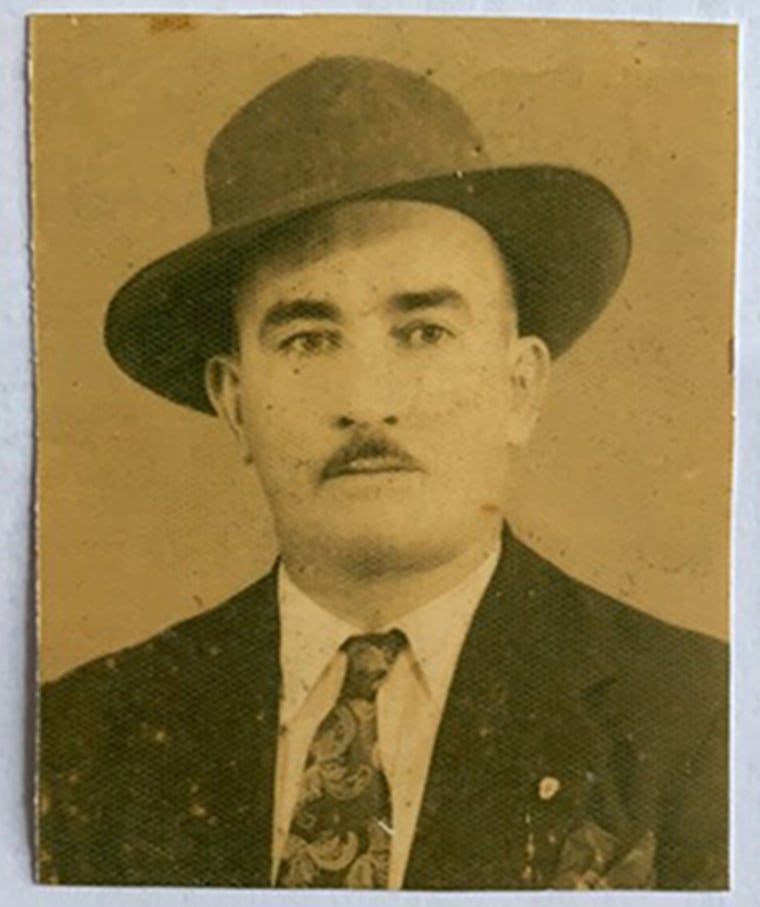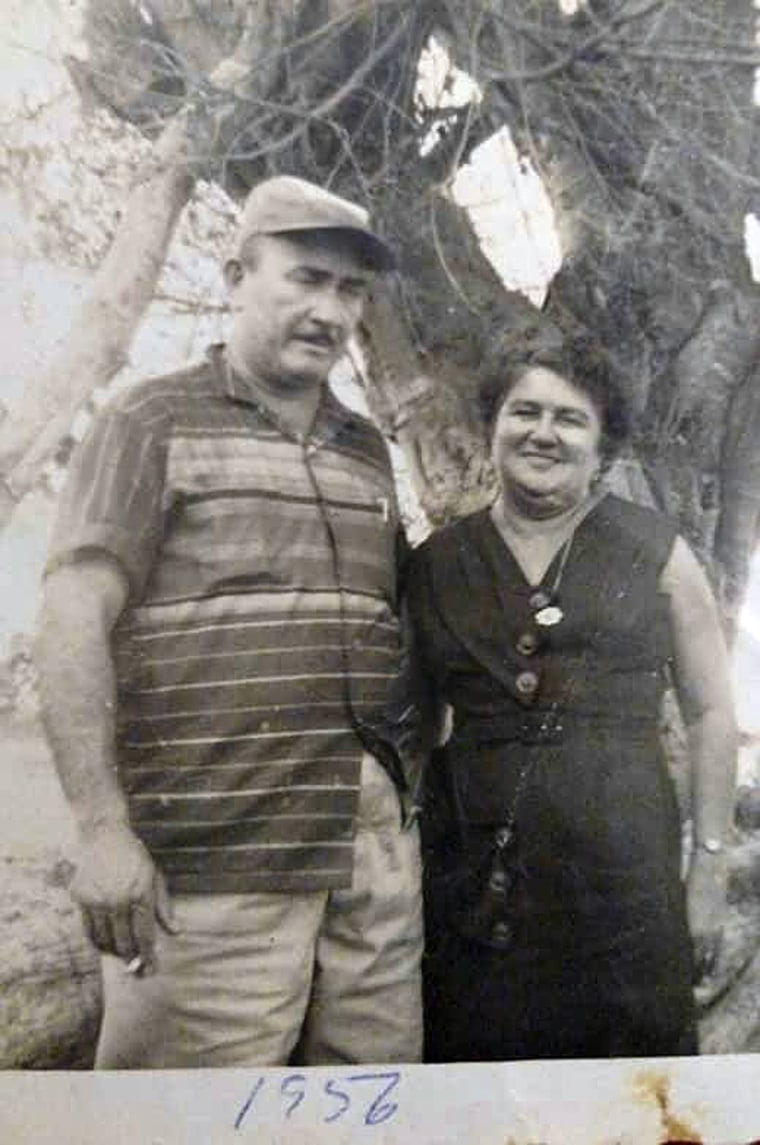My grandfather was in law enforcement and served as a bodyguard for a governor in Puerto Rico. But it was his sense of humor and unassuming nature that made him a true example to follow.
Luciano Guadalupe Díaz — Papi Chano to his grandkids — grew up in the countryside outside of Caguas, Puerto Rico, leaving school to help support his family after his father died. He spent his days going into town to sell eggs, vegetables, chickens, and other produce from the family farm.
It was on one of those trips that he met my grandmother, Mercedes Puig, a master seamstress who was selling her wares at an open-air market.
My grandmother’s family — especially her four sisters — always thought the country boy was too uncouth for their refined and educated sister from the city. But he always laughed them off and said, “I will outlive you all! You watch!”

And he almost did, living to nearly the age of 100 — at least we thought that was his age. He wasn’t even sure himself, saying that many people in the countryside would wait until several babies were born before going to the city to register the births because it was a long trip and not an easy one to do every day.
“I picked the month of June as my birthday because it’s so pleasant. Not too hot and it doesn’t rain that much in June around here,” he would tell us, always laughing when we would say how awful it was that he didn't know his "real" birthday.
My grandfather’s sense of humor colored everything he did; he always had a joke for everything, saying life is too short to get all worried about everything. I never heard a harsh word from him.There was something funny in everything, he’d say.
He once described a friend of my grandmother as being real pretty and being a real nice person and that the only thing she had to do to be absolutely perfect was “change her hair, her face, her clothes and her personality.”
Once on a trip to the doctor, his physician told him that he needed to have surgery on his eyes to clear some cataracts or risk losing his eyesight, but my grandfather wasn’t a big fan of doctors and hospitals. He told the doctor he'd seen everything he needed to see at this point and he wasn't going under the knife.

He lived many more years without the surgery and without any change to his eyesight. “I told you!” he proudly told us.
He was fiercely protective of my mother and her sister, calling them “las nenas” (the girls) until his dying day, and laughingly threatened any boy who came calling. When asked about his first impression of my father, he laughed as said, “Well, he’s tall. I’ll give you that.”
Even my grandfather’s dream of becoming a police officer was colored with comedy and became family lore.
He had missed the minimum weight for the police academy by a few pounds, so my grandmother plied him with bacalao (cod fish) and yautía (a root vegetable) for several days straight, saying that was the best way to gain the water weight he needed to pass the physical.
Violá! It worked, only to be tripped up by the written exam, part of it in English, a language he barely knew. With his sense of humor and jokes, he charmed his way into getting a copy of the exam and my grandmother filled out the English-language section.
He would laugh when he’d tell the story but always made sure to tell us grandkids that it was “a different time."
“Don’t do that!” he added.
As a police officer and later a detective, he would use his famous humor on the job. On a trip to New York City with my aunt, he compromised with the airline pilot who said he couldn’t travel with his gun. He told the pilot to keep the bullets up front while he kept the gun in the holster. If there were any unruly passengers, my grandfather said, he would wave his gun and that would scare them enough to calm down. The pilot agreed.
On another plane trip, when asked if he wanted a hamburger or hot dog, he said with a big smile, “Both, of course!” The flight attendant obliged.
My grandfather was always looking out for us, giving my parents the down payment on their first house, and then showing up over the years at the crack of dawn with all kinds of food and tchotchkes. He would wake us up, telling us it was time to “do something!”
When I went off to college, he told me to be careful, and if I wanted to, he could get me a pistol to make sure no one bothered me. When I said, no thanks, he made sure to say, "Okay, well let me know and I’ll go and fix it! Don’t worry!”
My grandfather would strike up a conversation with everyone he’d meet — his favorite pastime was to sit and talk to people — and he was impressed with what they were doing, not with last names or titles or money.
My uncle, who always liked to brag that he was a good engineer — in fact the very best — ran head first into that when he was packing the car after a weekend trip to the countryside with my grandfather and the rest of the family. My uncle tied a suitcase to the top of the car, and my grandfather inspected it and said it didn't look like it would hold.
“I’m an engineer. I know what I’m doing,” replied my uncle.
Sure enough, while on the highway, my uncle’s car hit a little bump and the suitcase went flying off the car, landing with a thud and opening up. My grandfather, who was traveling in the car behind him, sped up and yelled out the window, laughing, “Hey Mr. Engineer, graduate of that fine engineering school, your wife’s underwear is all over the highway! Just letting you know,” to howls of laughter from my mother and us kids.
Every time the grandkids would visit, he’d give us each a quarter for ice cream and chips and sodas. I always thought, 'Wow, everything is so cheap in my mom’s hometown,' not knowing of course that my grandfather would later go to the store to settle the bill.
I always considered my grandfather to be a stand-up kind of guy, but I didn’t realize just how much that was true until his funeral, which was packed to the rafters with people telling stories about all those he had helped throughout the years — though he never mentioned it.
One guy whom no one recognized came into the funeral, sobbing.
Turns out he had been a petty thief, he said, until one day my grandfather told him with a smile, “You know what? I’m real tired of arresting you. Do you want to spend your life like this? You’re a young man. Get your life in gear!” My grandfather helped him get a job and it turned his life around, he told us.
Taking the day to pay tribute to the stand-up guy who's there for the family day in and day out — that's the meaning of Father’s Day.
Before we sent off our abuelo to the cemetery, we grandkids slipped a bunch of quarters into his front pocket, a tiny thank you for the countless quarters that went further than we could have ever possibly imagined.
Thanks, Papi Chano.
FOLLOW NBC LATINO ON FACEBOOK, TWITTER AND INSTAGRAM.